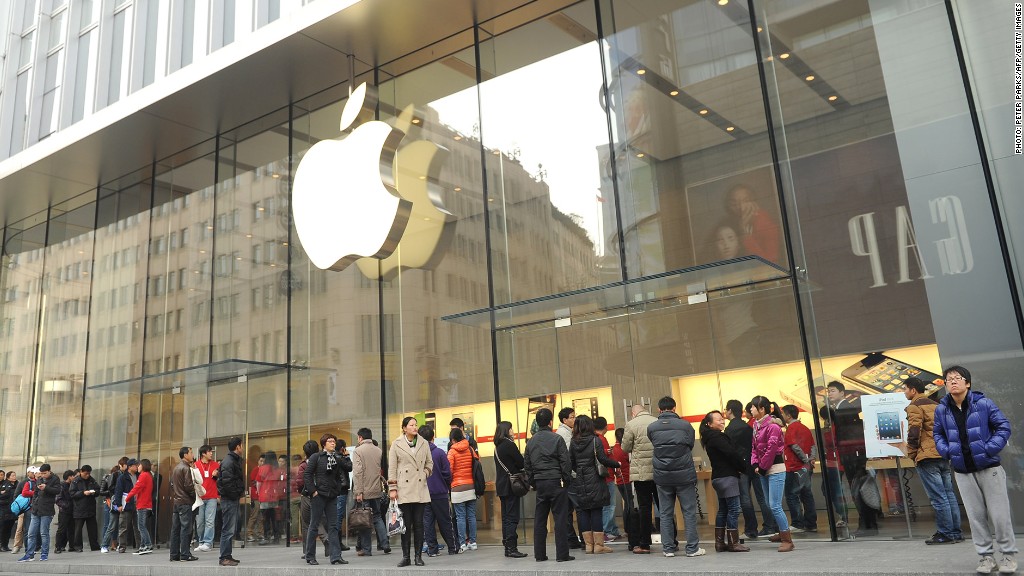Once a friend of the hedge fund industry, Apple's stock may have already turned into a foe.
With roughly one out of every five hedge funds counting Apple (AAPL) among their top 10 stock holdings, the recent sell-off in Apple's stock could start cutting into their returns.
Shares of Apple have dropped nearly 25% since mid-September, when they hit an all-time high of $705.
In a year where hedge funds have been struggling to generate returns, firms with outsize Apple holdings have been among the best performers.
Returns for the average hedge fund haven't been pretty. The Dow Jones Credit Suisse Core Hedge Fund Index was up just 2.37% through the end of the November, according to Goldman Sachs' research.
But take a look at one of the year's best performing funds: Tiger Global Management has one of the highest concentrations of Apple holdings, with roughly 10% of its $6.7 billion stock portfolio in Apple's stock as of Sept. 30, according to FactSet Research. And the fund logged gains of nearly 21% through the end of November, according to a person familiar with the fund's performance.
While it was still handily beating the S&P 500's 14% returns, Tiger Global's performance began to slip along with Apple's stock. In September, just before Apple's sell-off, Tiger Global had returns of 22.4%.
Related: Hard times come to the hedge funds
Greenlight Capital, the hedge fund run by noted short-seller David Einhorn, had about 8% of its $6.7 billion stock portfolio in Apple as of Sept. 30, according to FactSet. As of Nov. 30, Greenlight's 11.4% returns were trailing the S&P and were down from Sept. 30, when it generated returns of 13.5%, according to a person familiar with the fund's performance.
"If you were going to be beating the S&P 500 or coming close to it, it's hard to do it without owning Apple," said Brad Balter, the founder of Balter Capital Management, which advises clients on hedge fund investments.
By early November, only 13% of all hedge funds were still managing to outperform the S&P 500, according to Goldman Sachs research.
Still, for the last several years, the hedge fund industry and Apple have had a symbiotic relationship. It's too early to know whether hedge funds have already taken profits from their stake in Apple and sold out, contributing to the drop in its stock. Or whether they've taken some losses. Apple's stock, meanwhile, is still up nearly 34% this year.
Investors won't get much more clarity until mid-February, when hedge funds disclose their investments through the end of 2012.
For most of 2012, hedge funds had been reducing their Apple exposure, even before the more extreme part of the sell-off. FactSet estimates that hedge funds held 3.1% of Apple's outstanding shares at the end of September, compared with 4.2% at the end of 2011.
Related: Yahoo agitator Loeb picks his next target
Most hedge fund managers have been wary of discussing their Apple holdings, said Balter. "If your best idea is Apple or Google, and every investor under the sun plays that name, people are going to ask why you have an edge."
Einhorn, who won acclaim and is often seen as an oracle for his short call on Lehman Brothers ahead of its bankruptcy, hasn't been shy about professing his love for Apple. At an investment conference in May, he speculated that Apple's valuation could hit $1 trillion. While it reached nearly $700 billion at its high, it currently stands at $510 billion, slightly more than half Einhorn's estimate.



